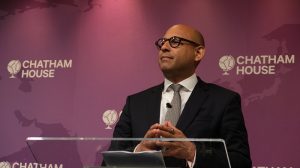UN Climate Change on June 28, 2024, officially launched its online reporting tools for the Paris Agreement’s Enhanced Transparency Framework (ETF). These tools will enable countries to track crucial climate data and information, from greenhouse gas inventories to progress made implementing their national climate plans, achievements and support.

Data submitted through these new online tools is an integral part of the information to be provided in Biennial Transparency Reports (BTRs) – the first round of which are due by December 31, 2024 – under the standardised formats established by the ETF.
These new BTRs – and the broader ETF – will enable much better assessments of global climate progress. At a national level, they will also be a vital enabling tool, helping countries to build a robust evidence base that governments can use to design stronger climate policies and national climate plans (known as Nationally Determined Contributions or NDCs).
“Biennial Transparency Reports shine a light on progress. Knowledge gained will help countries make informed choices, set ambitious goals, and unlock the finance needed to support them,” said UN Climate Change Executive Secretary, Simon Stiell.
The new online tools enable countries to compile data and generate reporting tables using agreed formats, ensuring a more streamlined and consistent reporting process and enabling aggregation of data.
Data gathered through the BTRs will help governments assess their climate progress and pinpoint areas where resources and support are most needed. Having a clearer understanding of these needs, backed by data, will put countries in a better position to attract more financing and accelerate achievement of their Paris Agreement commitments.
Support and Resources
An ETF reporting tools support site is available for Parties to use the new tools effectively. This resource includes user manuals, technical guides, FAQs and a portal to report technical issues. UN Climate Change will continue to update this page with additional information as needed.
A dedicated user management tool is also available, allowing Parties to designate individuals who will use the reporting tools on their behalf. National focal points have already begun nominating ETF Focal Points and Alternates. Designation of these roles is crucial for gaining access to the reporting tools.
UN Climate Change will continue to provide support and deliver as much practical assistance as possible. Information on specific training activities related to the ETF will be updated regularly on the same site.
Following the first capacity and confidence building workshop held in Baku in May, the incoming COP29 Presidency is planning to hold additional training sessions, including on the margins of the upcoming Intergovernmental Panel on Climate Change (IPCC) workshop on inventory software, which will be held in Baku, Azerbaijan, from September 4 to 6, 2024.
Addressing Challenges and Building Capacity
While the benefits of climate reporting are clear, preparing reports can be challenging for some countries. Not all countries have the same experience when it comes to reporting and review. Many nations, particularly developing countries, face problems gathering, managing and analysing data and producing reports.
UN Climate Change has joined forces with other support providers to ensure countries have the information, training and hands-on experience to navigate the new tools and procedures and is committed to developing more training and capacity-building programmes.
Over 1,900 experts from 150 countries have already been trained, building capacity for thousands of practitioners, including those working across other intergovernmental organisations. All countries are encouraged to take advantage of workshops and available resources to learn, test, and build the skills and capacities they need.
Stiell added: “We should not see reporting as a burden, but as an incredible opportunity – to learn from the data and to design more effective policies. To direct resources where they’re needed most. And to share the successes we’re so proud of. Together we can build capacity, to see and seed more climate action and change lives for the better.”
